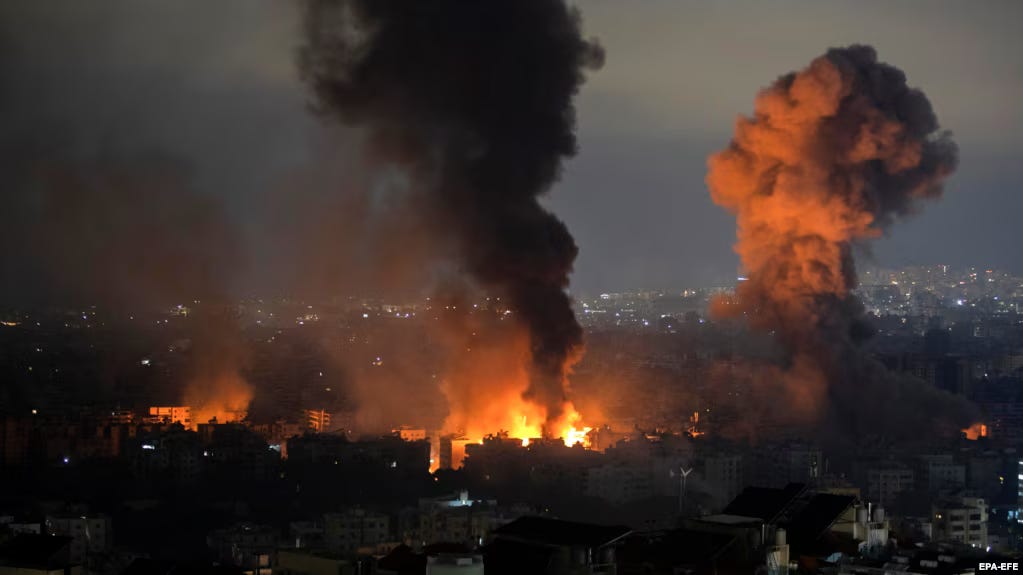Interview with RFE/RL on the possible effects of an Iran-Israel war on oil prices
I gave an interview to Radio Free Europe/Radio Liberty published on Wednesday 09 October 2024 on the possible effects of an Iran-Israel war on oil prices.
You can read my full responses to the RFE/RL interviewer’s questions, which were not included in their entirety in the final article, below:
We have seen little economic impact of the tensions in the Middle East on the global economy so far. Do you see it changing now that tensions are rising in the region as Israel has vowed to respond to Iran's missile attack?
Oil prices are increasing amid rising speculations that Israel might attack Iranian oil installations. Tehran has already threatened to sabotage regional oil supplies if its installations are attacked. Do you think this can devastate the global energy supply?
With the Red Sea route being largely abandoned by commercial ships because of attacks by the Houthis, do you think a regional war will completely choke international trade and energy supply from the region?
In the worst-case scenario, can rising Middle East tensions force the entire global economy into a tailspin?
We have only seen a limited impact from the conflict in the Middle East on the global economy until now. This could change as the conflict escalates and if each sides begin targeting regional oil and gas-related infrastructure.
If key Iranian oil and gas production and export facilities are targeted, the Islamic Republic may resort to placing pressure on important transit chokepoints like the Strait of Hormuz, or even targeting infrastructure in neighboring states. But it is likely to think twice before taking any such steps, because while an Israeli attack on Iranian infrastructure is likely to be viewed as part of the conflict between those two countries by the international community, any Iranian retaliation that affects global energy prices or trade or harms neighboring countries is likely to be viewed as an act of aggression against third parties, and lead to further pressure on Iran.
While a major disruption of regional oil and gas exports is likely to have a material impact on the global economy, it is not likely to force the entire global economy into a tailspin, or even be as devastating as past events that led to massive energy prices hikes, like the Arab oil embargo of 1973 during the Yom Kippur War, or following the Iranian Revolution of 1979. This is for a variety of reasons, including the growth of oil and gas supplies from regions other than the Middle East (such as the United States), decreased global reliance on oil and gas and the increased energy efficiency of machines that use these fuels, the existence of large strategic oil reserves in some countries, etc. So, while Western consumers will feel the price hike at the pump, it will be much less than it might have been in a previous era. The same goes for the disruption of traffic through the Red Sea.
A serious disruption of regional supplies would have an outsized effect on the Chinese economy, which gets a majority of its oil imports from the Middle East, including around an estimated 1.5 million barrels per day from Iran, or roughly 15 percent of these imports. Increased energy prices for China would in turn filter through the supply chain to the manufactured goods the country exports to the United States, Europe, and elsewhere, potentially resulting in higher prices and more inflation for consumers.
Then there are the potential secondary effects from a sustained conflict in the Middle East that could spillover into the rest of the world. Iran, which has some of the lowest priced (subsidized) energy in the world, directly or indirectly supplies neighboring countries and strategic partners like Syria with cheap energy. Disruption of Iranian and other Middle Eastern oil supplies would thus have an outsized effect on struggling regional economies. Worsening economic conditions, alongside the spreading devastation from the conflicts Gaza and Lebanon, is likely to increase refugee flows that reach Western shores.
Finally, once the conflict subsides, Gaza and Lebanon (and potentially other countries depending on the trajectory of the conflict) will be in desperate need of humanitarian and reconstruction aid, and the international community will be asked to share in this burden. This is likely to be met with greater resistance in Western capitals, where stagnant economies and commitments to Ukraine in its war with Russia have put strain on their willingness and ability to provide further aid.


